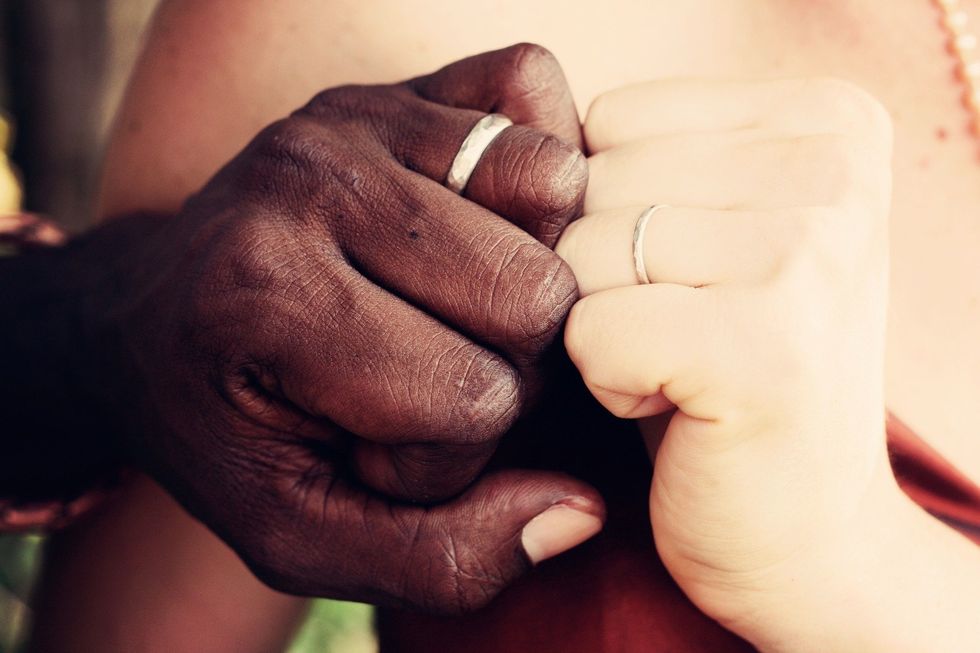Before I write an article, I always do a quick Google search on the topic to see what is out there, and then decide if writing out my view on the subject will make a contribution, or dare I say a difference, to what has already been said on the matter. My Google search on human monogamy was intense and frustrating in the sense that there is a lot of material on it, but none of it seems particularly reliable. I considered the search reason enough for me to write this article though, as the few seemingly reliable articles I found focused mostly on biological and comparative interpretations of monogamy, and although I reference some of them in the following article, none of them resembled my thoughts on the matter.
So why am I writing about monogamy? I am starting my third year of college, and like most college students, I have had a range of romantic and not so romantic experiences, from feeling intense jealousy to carefree flirting with a boy I just met at some party. And although yes, I do want to get married and have children and a beautiful white house with many pets, there are times in which I really prefer the carefree flirting with a boy I don't know. And I am young and I know that the time to get this flirting out of my system is now, but being the anxious overthinker that I am, I naturally freaked out and felt the need to write 500 words minimum on this topic the second one of my psychology professors brought it up in class. Basically, my professor explained how humans have an innate preference for novelty, and how after being married for a while there are contrasting forces at work with regards to how one person perceives the other: there is a mutial attachment to each other and an attachment to the life this couple has built together which oppose the diminished sexual desire for each other and an increasing desire to seek novelty.
This cynical view of marriage, fit perfectly with many of my own sociological and psychological observations, such as how we need different friends for different things, which I discuss more in another article (some friends are good study buddies, some friends are fun to go out with, some friends you can talk more openly to, etc.); and how we are always changing. From our personal and internal growth and maturation (that doesn't stop once we reach adulthood), to ever-changing tastes and interests, to increased globalization allowing more people to move to different places, and what about those crazy studies I was shown in senior year of high school, that say millennials will likely have more than four careers?
And what is monogamy, anyway? Isn't having many romantic partners, even if they are one at a time, not monogamous? The other articles google brings up on monogamy all claim that geese have only one romantic partner, and will only mate with this partner and if this partner dies before them, they won't mate with anyone else? I mean, talk about loyalty right? These articles also point out that very few mammals are actually monogamous – 3-5% to be precise. So what would make humans so special as to fit these loyal few? And if monogamy is th natural way for humans to behave in, why are divorce rates so high? Why do so many people cheat?
I am not even going to address in much detail the somewhat anti-feminist interpretation that men and women have different genetic goals due to men having unlimited sperm, and thus aiming to spread their genes as far and as wide as possible vs. women having limited amounts of eggs and so having to select their partners more wisely. Although this approach makes sense from a genetic and evolutionary perspective, it doesn't take into consideration the fact that women also sometimes don't want a fixed partner and would rather be left alone, or the fact that women are also sometimes afraid of commitment and also cheat on their partners, and this approach completely ignores gay couples. But it did come up frequently in my search, so I did feel the need to mention it if only to criticise it.
So with all this evidence against monogamy piled high in a word document, I should just conclude the article and go do my homework.
But the romantic in me won't allow it! If we aren't meant to be monogamous, why do we get jealous? Why are mother and father figures so important for the formation of our personalities and for predicting the ways in which we will relate to other people? Why are stable environments the best environments to raise children?
And now the selfish reason – wouldn't it be great to have a lifelong partner, a constant rock in your life so that you both can face this big ever-changing world together?
My arguments against monogamy may be more rational, but isn't love irrational? When you are really in love with a person, do you really feel ok about sharing them when someone else?

















